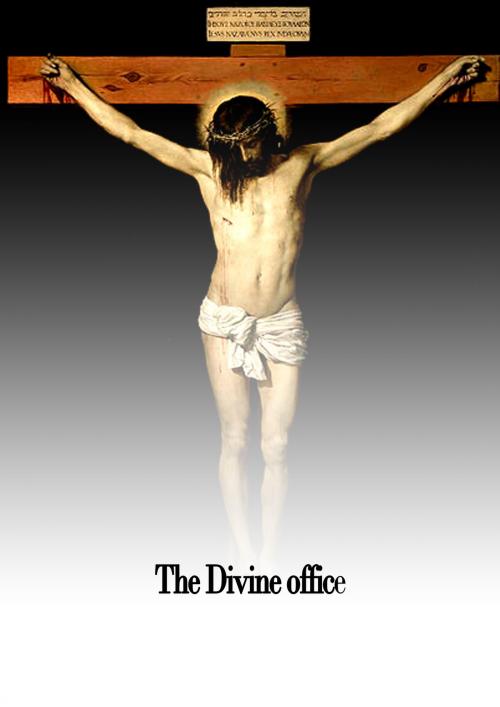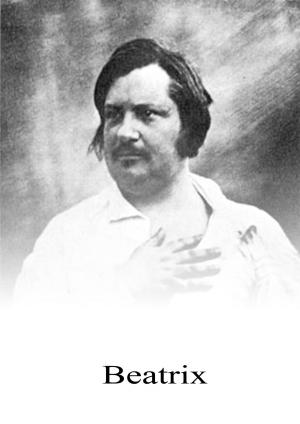| Author: | Rev. E.J. Quigley | ISBN: | 1230000099498 |
| Publisher: | Zhingoora Books | Publication: | January 14, 2013 |
| Imprint: | Language: | English |
| Author: | Rev. E.J. Quigley |
| ISBN: | 1230000099498 |
| Publisher: | Zhingoora Books |
| Publication: | January 14, 2013 |
| Imprint: | |
| Language: | English |
PREFACE
In the studies preliminary to ordination, the greatest time and attention must be given to the study of Dogmatic and Moral Theology. Certain subjects, such as liturgy, are always in danger of being shortened or of occupying a very small space in a college course. After ordination, priests find that these subjects are things of daily and hourly interest and importance. Who is it that does not know that the study of the Mass and the Missal, of the Breviary, its history and its contents are studies useful in his daily offering of sacrifice and praise?
I hope that this book may serve as an introductory manual to the study of the Breviary. It may be useful to junior students in colleges, in giving them some knowledge of the Church's Hours, which they assist at in their college choirs. It may assist them to know and love the official prayers of the Church, and may help to form devout habits of recitation, so that, when the obligation of the daily office is imposed on them, they may recite it digne, attente et devote. The "texts and intentions" may be an aid to them, and to students in Holy Orders, in the great and glorious work of pious prayer.
Perhaps, this book may be a help to priests. It is an attempt to bring into one handy volume many matters found in several volumes of history, liturgy, theology, and ascetic literature. Much of it they have met before, but some of it may be new and may enable some to pray more fervently and to aid them in the difficult work of saying each Hour and each part of an Hour with attention and devotion. Some of the pages may be to them instructive, and may give them new ideas on such points as the structure of the Hours, the Collects, the Te Deum, the Anthems of the Blessed Virgin, etc.
No book is faultless. Of this one, I can say with the Psalmist, "I studied that I might know this thing, it is a labour in my sight" (Psalm 72). And I can say it with St. Columban, Totum, dicere volui in breve, totem non potui. In the book I quote Cardinal Bona. In his wonderful Rerum Liturgicarum (II., xx., 6) he wrote what I add as a finish, to this preface:—
"Saepe enim volenti et conanti vel ingenii vires vel rerum antiquarum notitia vel alia subsidia defuerunt; nec fieri potuit quin per loca salebrosa in tenebris ambulans interdum offenderim, Cum aliquid incautius et neglentius a me scriptum offenderit, ignoscat primum lector, deinde amica manu corrigat et emendat et quae omisi suppleat."
E.J.Q.
ROCKCORRY, CO. MONAGHAN.
CONTENTS
PART I.
GENERAL QUESTIONS.
I. Idea of the Breviary
II. Short History of Divine praise in general,
of the Breviary in particular
III. The excellence of the Roman Breviary in
itself and in comparison with others
Respect due to the sacred volume
IV. 1. The contents of the Breviary
2. The ecclesiastical year and its parts; the
calendar
3. General Rubrics of the Breviary
Title I. The double office
" II. The office of a semi-double
" III. The office of a simple
" IV. The office of Sunday
" V. The ferial office
" VI. The office of vigils
" VII. Octaves
" VIII. Office of the Blessed Virgin for Saturdays
" IX. Commemorations
" X. The Translation of Feasts
" XI. Concurrence of office
" XII. The arrangement of the office
" XIII. Matins
" XIV. Lauds
" XV. Prime
" XVI. Terce, Sext, None
" XVII. Vespers
" XVIII. Compline
" XIX. The Invitatory
" XX. Hymns
" XXI. Antiphons
" XXII. Psalms
" XXIII. Canticles
" XXIV. Versicle and responds
" XXV. Absolutions and Benedictions
" XXVI. The Lessons
" XXVII. The responses after the lessons
" XXVIII. The short responses after the hours
" XXIX. Capitulum
" XXX. Oratio, collects
" XXXI. The Hymn Te Deum
" XXXII. Pater Noster and Ave
" XXXIII. The Apostles' Creed and the Athanasian Creed
" XXXIV. The Preces
" XXXV. The suffrages of the saints
" XXXVI. The antiphons of the Blessed Virgin
" XXXVII. The little office of the Blessed Virgin
PREFACE
In the studies preliminary to ordination, the greatest time and attention must be given to the study of Dogmatic and Moral Theology. Certain subjects, such as liturgy, are always in danger of being shortened or of occupying a very small space in a college course. After ordination, priests find that these subjects are things of daily and hourly interest and importance. Who is it that does not know that the study of the Mass and the Missal, of the Breviary, its history and its contents are studies useful in his daily offering of sacrifice and praise?
I hope that this book may serve as an introductory manual to the study of the Breviary. It may be useful to junior students in colleges, in giving them some knowledge of the Church's Hours, which they assist at in their college choirs. It may assist them to know and love the official prayers of the Church, and may help to form devout habits of recitation, so that, when the obligation of the daily office is imposed on them, they may recite it digne, attente et devote. The "texts and intentions" may be an aid to them, and to students in Holy Orders, in the great and glorious work of pious prayer.
Perhaps, this book may be a help to priests. It is an attempt to bring into one handy volume many matters found in several volumes of history, liturgy, theology, and ascetic literature. Much of it they have met before, but some of it may be new and may enable some to pray more fervently and to aid them in the difficult work of saying each Hour and each part of an Hour with attention and devotion. Some of the pages may be to them instructive, and may give them new ideas on such points as the structure of the Hours, the Collects, the Te Deum, the Anthems of the Blessed Virgin, etc.
No book is faultless. Of this one, I can say with the Psalmist, "I studied that I might know this thing, it is a labour in my sight" (Psalm 72). And I can say it with St. Columban, Totum, dicere volui in breve, totem non potui. In the book I quote Cardinal Bona. In his wonderful Rerum Liturgicarum (II., xx., 6) he wrote what I add as a finish, to this preface:—
"Saepe enim volenti et conanti vel ingenii vires vel rerum antiquarum notitia vel alia subsidia defuerunt; nec fieri potuit quin per loca salebrosa in tenebris ambulans interdum offenderim, Cum aliquid incautius et neglentius a me scriptum offenderit, ignoscat primum lector, deinde amica manu corrigat et emendat et quae omisi suppleat."
E.J.Q.
ROCKCORRY, CO. MONAGHAN.
CONTENTS
PART I.
GENERAL QUESTIONS.
I. Idea of the Breviary
II. Short History of Divine praise in general,
of the Breviary in particular
III. The excellence of the Roman Breviary in
itself and in comparison with others
Respect due to the sacred volume
IV. 1. The contents of the Breviary
2. The ecclesiastical year and its parts; the
calendar
3. General Rubrics of the Breviary
Title I. The double office
" II. The office of a semi-double
" III. The office of a simple
" IV. The office of Sunday
" V. The ferial office
" VI. The office of vigils
" VII. Octaves
" VIII. Office of the Blessed Virgin for Saturdays
" IX. Commemorations
" X. The Translation of Feasts
" XI. Concurrence of office
" XII. The arrangement of the office
" XIII. Matins
" XIV. Lauds
" XV. Prime
" XVI. Terce, Sext, None
" XVII. Vespers
" XVIII. Compline
" XIX. The Invitatory
" XX. Hymns
" XXI. Antiphons
" XXII. Psalms
" XXIII. Canticles
" XXIV. Versicle and responds
" XXV. Absolutions and Benedictions
" XXVI. The Lessons
" XXVII. The responses after the lessons
" XXVIII. The short responses after the hours
" XXIX. Capitulum
" XXX. Oratio, collects
" XXXI. The Hymn Te Deum
" XXXII. Pater Noster and Ave
" XXXIII. The Apostles' Creed and the Athanasian Creed
" XXXIV. The Preces
" XXXV. The suffrages of the saints
" XXXVI. The antiphons of the Blessed Virgin
" XXXVII. The little office of the Blessed Virgin















![Cover of the book The Letters of Horace Walpole [Volume 4] by Rev. E.J. Quigley](https://www.kuoky.com/images/2012/december/300x300/1230000039137-Aw1C_300x.jpg)